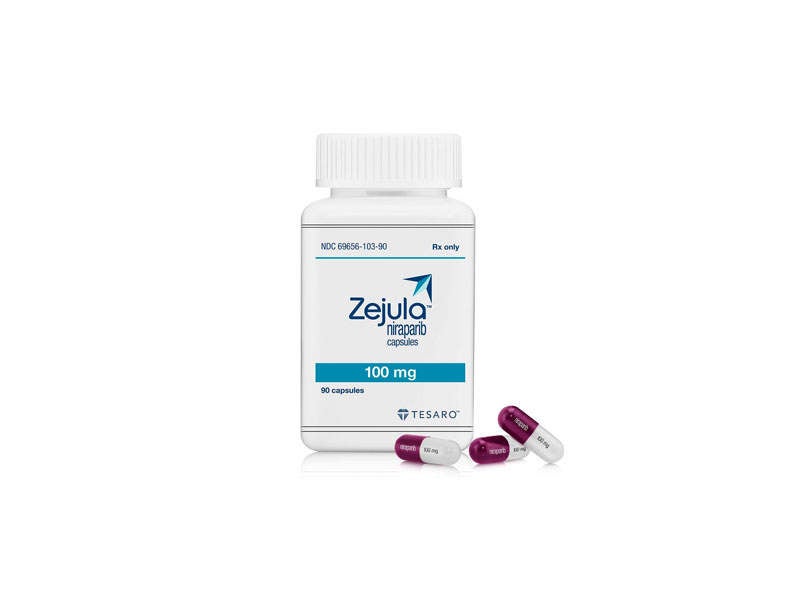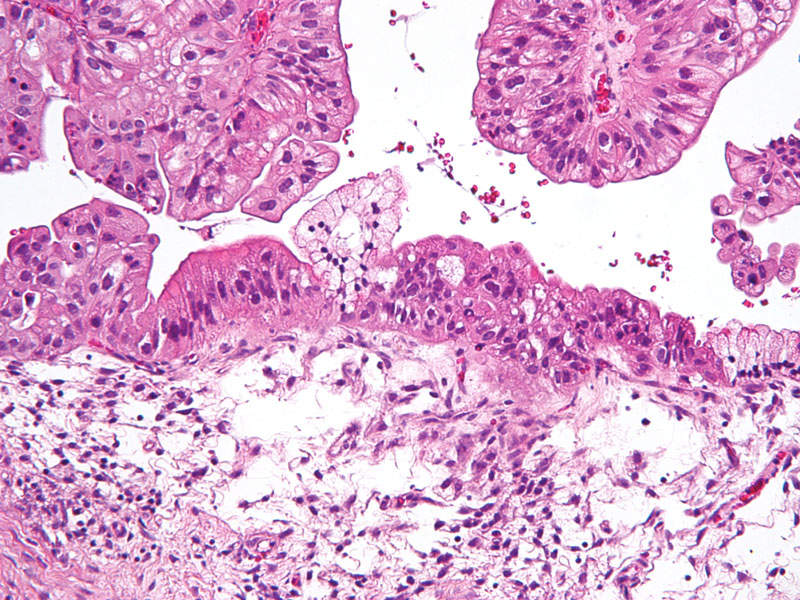Zejula (niraparib) is a poly adenosine diphosphate (ADP) ribose polymerase (PARP) inhibitor approved for the treatment of adult patients with ovarian cancer.
Discovered and developed by US biopharmaceutical company Tesaro, Zejula received marketing approval from the US Food and Drug Administration (FDA) as a maintenance treatment for women with recurrent epithelial ovarian, fallopian tube, or primary peritoneal cancer in March 2017.
Tesaro launched the drug in the US market for ovarian cancer indication in April 2017.
In October 2019, the US FDA approved Zejula for use in late line treatment of women with advanced ovarian cancer with positive homologous recombination deficiency (HRD+).
Janssen Biotech holds the rights to develop and market Zejula for prostate cancer worldwide, excluding Japan.
Zejula is the only anti-PARP drug used once daily as monotherapy for recurrent ovarian cancer.
Ovarian cancer causes and symptoms
Ovarian cancer is characterised by abnormal growth of cancerous tumours developing in the cells covering the ovaries or fallopian tubes.
The disease is the fifth most frequent cause of cancer-related death among women. Its symptoms include bloating, pelvic pain, abdominal swelling and loss of appetite.
An estimated 22,000 new ovarian cancer cases a year are registered in the US, with more than 65,000 cases registered in Europe.
Zejula’s mechanism of action
Zejula contains poly ADP-ribose polymerase (PARP) 1 / 2 inhibitor. The drug concentrates in the tumour relative to plasma and brings around 90% durable inhibition of PARP 1 / 2 and a persistent anti-tumour effect.
The drug is available in a 100mg-dosed capsule for oral administration.
Clinical trials on Zejula for ovarian cancer
FDA approval for Zejula comes from results of phase III clinical trial known as ENGOT-OV16 / NOVA, a double-blind, placebo-controlled, international clinical study enrolling 553 patients with recurrent ovarian cancer.
Patients were enrolled into two independent cohorts based on germline BRCA mutation status. The first cohort included germline BRCA mutation carriers, while second cohort patients were non-germline BRCA mutation carriers. Patients were randomised in a 2:1 ratio to receive 300mg of either Zejula dosed as three 100mg tablets a day or placebo.
The primary endpoint of the study was progression-free survival (PFS), while the secondary endpoints were patient-reported outcomes, chemotherapy-free interval length, PFS 2, overall survival and other measures of safety and tolerability.
Study results demonstrated that the patients who were treated with Zejula in germline BRCA mutation carriers achieved statistical significance over the control arm for the primary endpoint of PFS. The median PFS for patients treated with Zejula was 21.0 months, compared to 5.5 months for the control arm.
The study also showed that the drug was statistically significant in the treatment of patients in the non-germline BRCA mutant cohort. The median PFS in Zejula arm was 9.3 months, compared to 3.9 months in the control arm.
The secondary endpoints of the study, including chemotherapy-free intervals, time to first subsequent treatment and PFS 2, were statistically significant in Zejula-administered patients in both germline and non-germline BRCA mutation carriers.
The most common grade 3 / 4 adverse reactions encountered during the clinical study in patients treated with Zejula included thrombocytopenia, anaemia, neutropenia and hypertension.
Clinical trials on Zejula for other indications
Tesaro also initiated clinical trials on Zejula across multiple tumour types to evaluate the drug’s effect in potential combinations with other therapeutics. The ongoing clinical development programme on the drug includes a phase III clinical trial known as PRIMA, initiated for the evaluation of patients who have received first-line treatment for ovarian cancer.
Tesaro has also been conducting several combination studies such as TOPACIO involving Zejula plus pembrolizumab and AVANOVA with the combination of Zejula and bevacizumab.
Clinical trials on the drug for advanced ovarian cancer
Approval of additional indication comes from the QUADRA study, a phase 2, multi-centre, open-label and single-arm clinical trial.
QUADRA is the most extensive clinical study for anti-PARP drugs in women who received more than three treatments for advanced ovarian cancer.
A total of 463 patients were enrolled, including women with BRCA+ platinum-sensitive, resistant and refractory disease and women with HRD+ platinum-sensitive disease.
Patients were selected based on FDA-approved Myriad myChoice companion diagnostic test.
The patients were administered a dose of 300mg once daily; treatment continued until the disease progressed.
An objective response rate (ORR) of 24% and a median duration of response (mDOR) of 8.3 months were observed in the FDA-indicated patient population.






